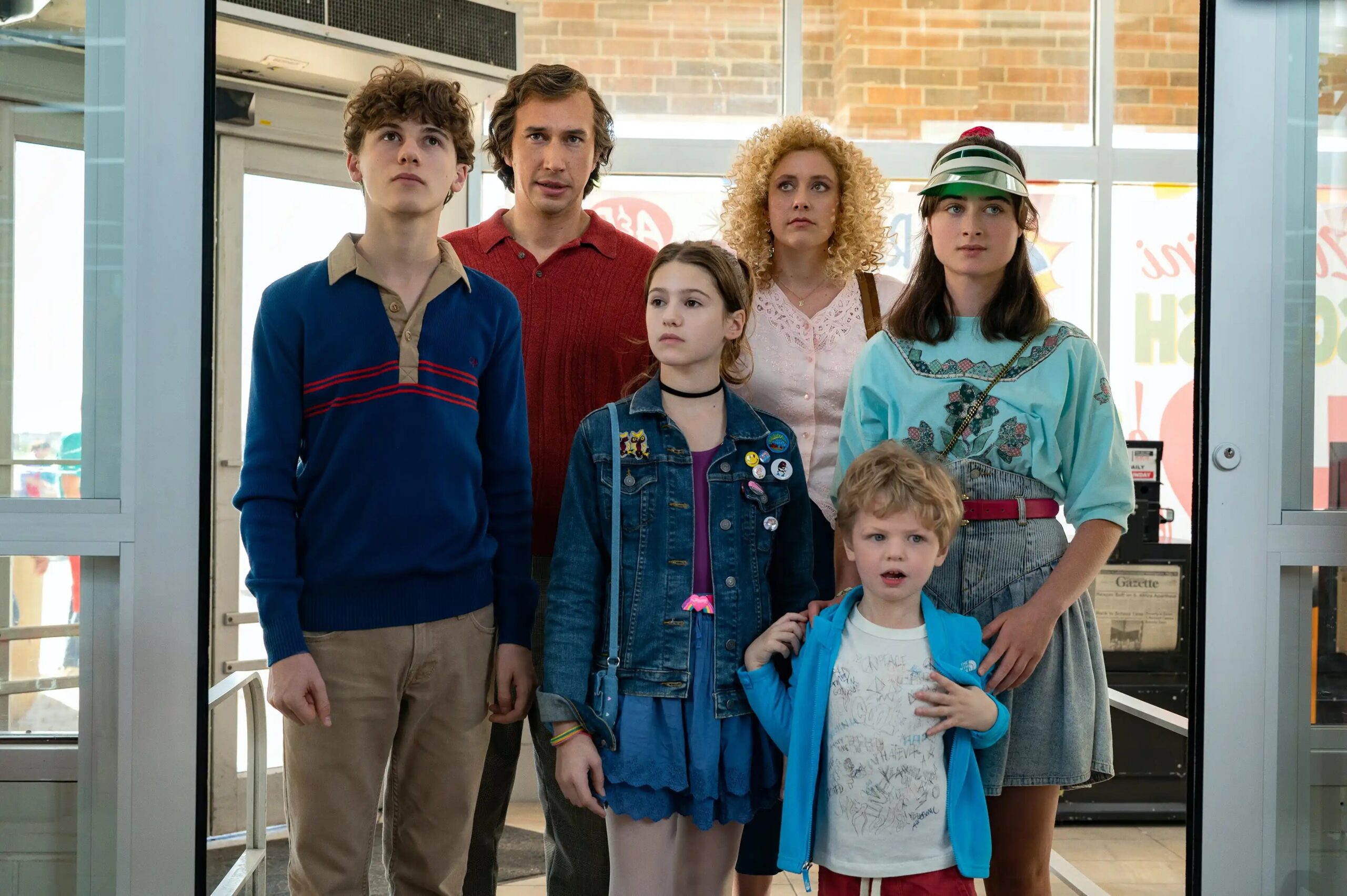Noah Baumbach (The Squid and the Whale, The Meyerowitz Stories, Marriage Story) has long-drawn from his personal life, both as a child of divorce and as a divorcee himself, to construct smaller-scaled cinematic stories woven in realism. A common theme in his popular body of work: familial camaraderie maintained despite the black clouds of intimacy abandon still hung-over the perpetually estranged.
Solo-adapting someone else’s original text for a change permitted the multi-Oscar-nominated filmmaker to tango with a literal black cloud this go-around. For his latest, Baumbach hiked up the production budget to $80 million, the stakes to post-modern, pre-apocalyptica, and overall scope to creatively uncharted Spielbergdom by setting sail on a tale many are calling his “white whale” – a film version of Don DeLillo’s absurdist and darkly comic 1985 novel, White Noise.
Sporting Baumbach pastiches like a family in peril who are never shy to partake in advanced scholarly discourse, White Noise’s Netflixized counterpart remains Reagan-Eighties commercially surrendered while commenting on nihilism as it still exists today. From the battlefields overseas to our supermarket aisles stateside, families are still pulled apart by pill-bottled numbing agents. All the while, society is still seduced in wartime by propagandized notions that end days are near if we don’t change our ways— and paralyzed in downtime by the beast with a billion backs called “anxiety.”
What’s more: Baumbach regular Adam Driver stars as protagonist, Jack Gladney, an acclaimed professor of “Hitler Studies”– something that drew instantaneous controversy when plot summary news hit social media back in 2021. Film Twitter vigilantism quickly swooped in to correctly clap-back with the facts: just as it was true on DeLillo’s pages, Jack’s classroom-projected bytes of the thankfully ill-fated Third Reich did not equal endorsement.
Rather, his vocation requires schooling successive generations on how chaotic figures – particularly, Adolf Hitler – usurped power, the hypnotizing language they used to fuel their reach, and what our doomsday recourse should be to ensure the past is not repeated. Don Cheadle’s enamored Murray Siskind ogles over his colleague Gladney’s every deliverance while theorizing in his own curriculum that Elvis Presley similarly swept the nation and pop culture beyond repair.
At the end of business, Jack is still on the clock, putting on his dad cap to play makeshift Sherlock Holmes in the case of his wife, Babette’s (played by Oscar-nominated filmmaker, Greta Gerwig, Baumbach’s life partner and Greenberg/Frances Ha/Mistress America/Barbie collaborator) curiously lapsing memory. At first, pursuing a plunge down this potentially cataclysmic rabbit hole takes a backseat to “The Airborne Toxic Event” that makes a family headed by fatalists fear the Grim Reaper even more so.
When it’s in their rearview, the Gladney’s and audiences alike are in for a rude awakening— one that somehow ends musically, but we’re not complaining. We are just The Messenger.
Stream White Noise on Netflix to determine for yourself what the hubbub is all about.







